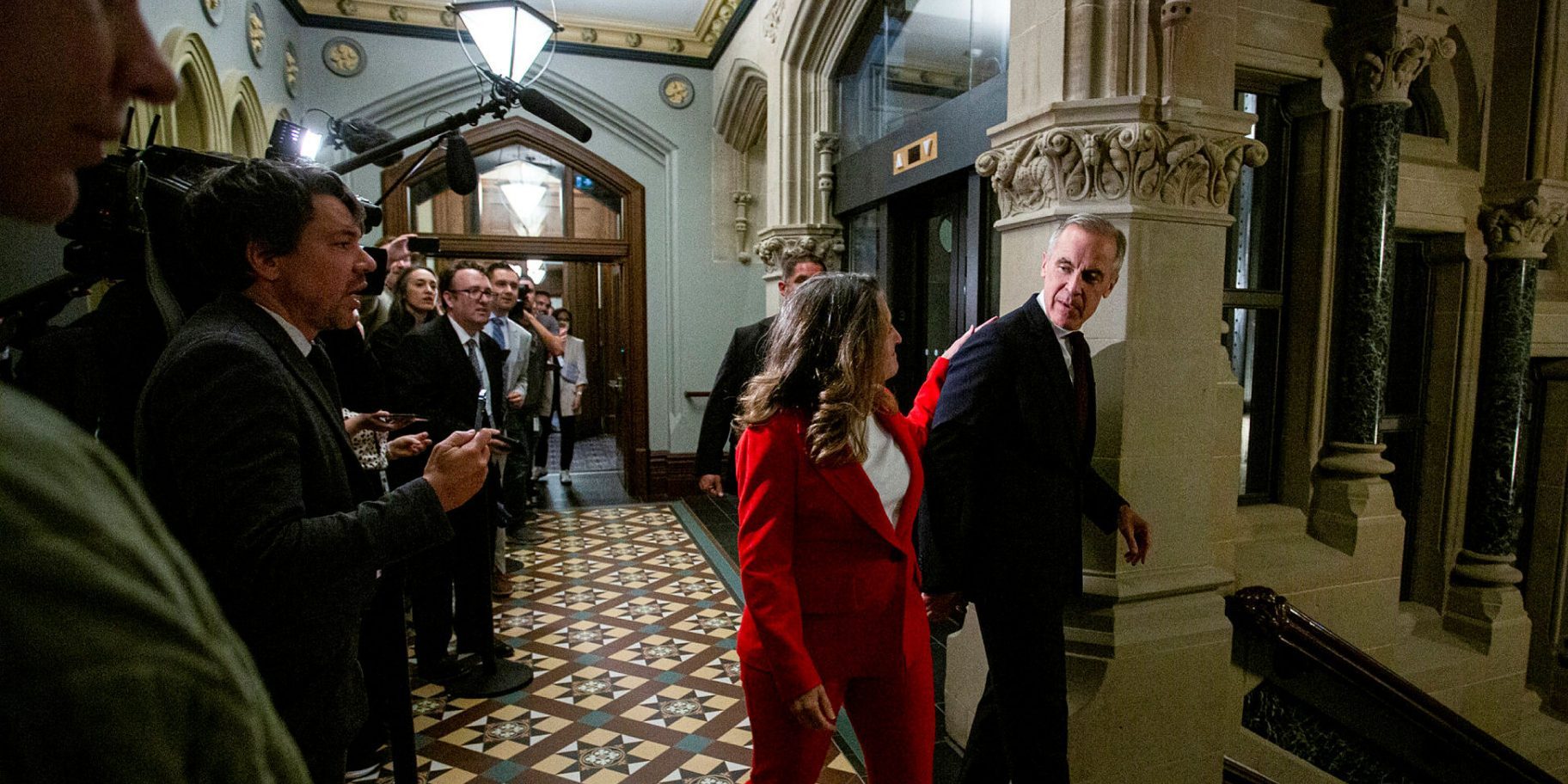Prime Minister Carney should run contested nominations in soon-to-be vacant ridings, or risk losing grassroots support

At least three—and possibly as many as five—safe Liberal ridings are expected to open up in the coming months.
Chrystia Freeland, a former powerhouse cabinet minister, announced her resignation from cabinet last week and Prime Minister Mark Carney also announced that he’s asked her to serve as Canada’s new representative for the reconstruction of Ukraine.
Former Trudeau-era cabinet ministers Bill Blair and Jonathan Wilkinson are also widely expected to step down soon. Both men are expected to move into diplomatic roles. Political insiders say Heritage Minister Steven Guilbeault could also leave in the coming months, as well. Similarly, three-term Liberal MP Nathaniel Erskine-Smith could leave to pursue his interest in the Ontario Liberal leadership that opened up recently after Bonnie Crombie failed to get adequate support in her leadership review.
The jockeying among prominent Liberals is already underway. The question now is whether Carney will allow open, contested nominations, or let the party again rig the rules to parachute in star candidates handpicked by senior Liberals. Carney, who won the party’s leadership race last March with grassroots support across all ridings, should ensure he recruits new candidates through fair nomination elections.
Former prime minister Justin Trudeau’s downfall was partly rooted in a demoralized base, frustrated by a decade of centralized nominations where personal connections to the PMO and with other senior Liberals mattered more than local grassroots engagement.
The Conservatives, under Pierre Poilievre, made the same mistake in the last election cycle, running one of the most centralized nomination processes in that party’s history, for which they paid the price at the ballot box—winning just 144 seats instead of more than 220 many observers had predicted. Potential candidates and riding association presidents have since vented their frustrations to the national council, the party’s highest elected governing body, accusing the party of betraying its grassroots commitments. The lack of fair nominations is one of the key reasons why the party failed to form government.
The Liberals face the same risk. This is the party’s fourth straight mandate, but Carney’s first. He leads a minority government, and with the average minority lasting just 19 months—Joe Clark’s lasted less than nine months back in 1980—he cannot afford to alienate his base.
Carney’s landslide leadership win could unravel quickly if he disappoints grassroots members by sidelining them in the candidate nomination process. He should also remember that once a leader loses the enthusiasm of the party base, winning it back is a major challenge.
The Hill Times





 LICENSING
LICENSING PODCAST
PODCAST ALERTS
ALERTS


